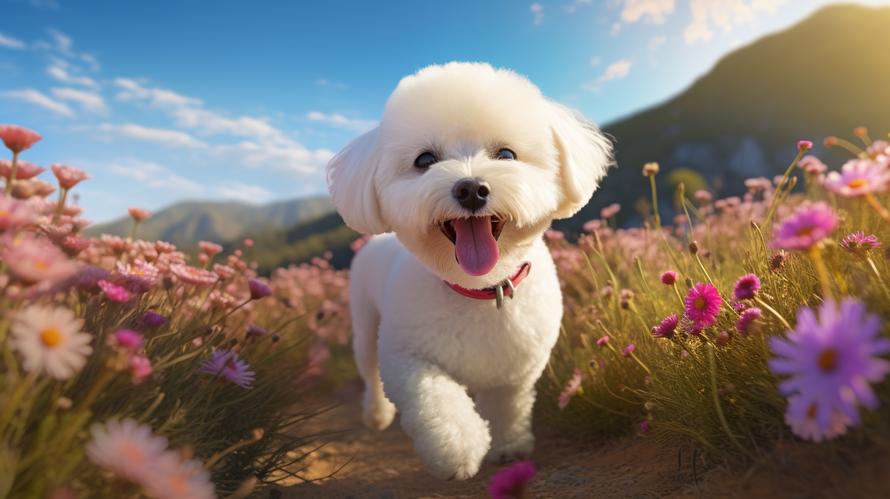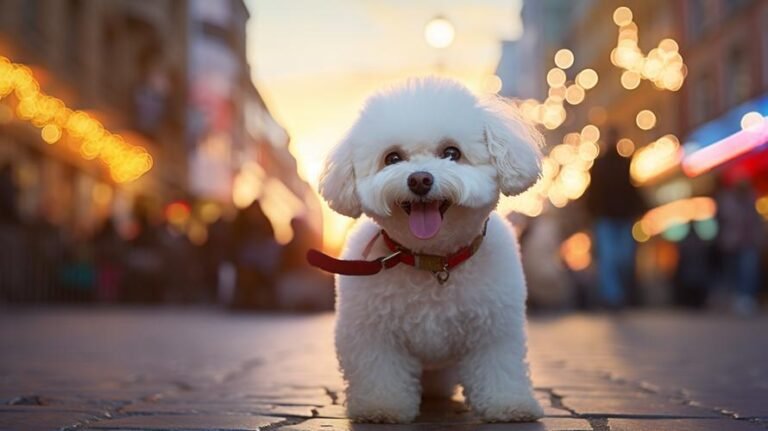If you’ve ever seen a cotton ball with legs, you’ve probably met a Bichon Frise. This petite, bushy breed, often compared to a child’s teddy bear, is undeniably irresistible. But don’t be fooled by that powder-puff appearance! There’s a lot more to a Bichon Frise than meets the eye. That beguiling charm often harbors a strong-willed spirit that, admittedly, can result in some shocking eyebrow-raisers!
Many consider the Bichon Frise a difficult breed, but is that true? Depends on your definition of “difficult”, my poodle-loving friend. It’s time to put on your doggy-detective hat and explore the reality of parenting a Bichon Frise. It might surprise you!
Your Cute, Cloud-Like Child
Bichons hail from the Mediterranean, specifically, the Canary Islands. In the past, these puffballs adorned the laps of royalty and artists, no doubt adding a generous helping of class and elegance to any canvas. They’ve remained an absolute favorite for centuries, not just for their stunning looks but their bright, often extended bouts of energy.
Yes, Bichons adore playtime. This ball of fur is a bundle of energy that loves any opportunity to throw that petite frame into the air, twirl with unabashed glee, or chase invisible ghost butterflies. Bichons exhibit surprising agility for a breed of their size!
However, this merry gameness might be misinterpreted as mischievousness. You wouldn’t believe how keen a Bichon is on a good Sherlock caper, prying into crevices, nooks, and hidey-holes where they shouldn’t be. That’s where the “difficult” part starts to creep in.
Temperament of the Tiny Tyke
Bichon Frises are intelligent creatures with a stubborn streak. They have an innate desire to explore and understand their surroundings. This curiosity, while admirable, can sometimes be exhausting to keep up with, especially if you are unaccustomed to lively breeds.
Bichons are sociable but also have a strong sense of independence. They tend to assert dominance, not just over their toys but sometimes even their owners! Yes, they can be bossy, testing limits and checking whether they can bend the rules!
However, their sterling characteristic lies in their adaptability. Bichons are almost chameleonlike in their ability to blend into any household. Whether it’s a bustling family of five or peaceful retiree duo, they shift to match their family’s rhythm, becoming energetic playmates or tranquil companions as needed.
Bichon Frise Training – Not for the Faint-hearted!
Now we journey into the rather challenging aspect of raising a Bichon, the dreaded task of training. First, let’s address the obvious: Bichon Frises are not Golden Retrievers. They’re not the type of pedigree that will instinctively sit, roll, or fetch. They learn all this and more, but it takes patience and consistency.
House-training is the first mountain you’ll have to climb, especially as stubbornness can cause setbacks. Crate-training is a common technique used to establish a routine. Next, come basic commands such as “sit”, “stay” and “come”. Consistency is key here, as is a pocket full of treats for positive reinforcement!
Another factor to remember: Bichons do not respond well to rough or aggressive training methods. They are sensitive dogs, and harsh discipline can cause fear or anxiety. Gentle, consistent guidance usually fetches the best results.
Yet, don’t be too discouraged. Difficult does not equal impossible. With the right approach, your Bichon will learn to become a well-mannered household companion. Plus, the result is always rewarding. A trained Bichon is an absolute delight, devoted, and perfectly capable of smart tricks that’ll impress any dog lover!
In Health They Trust
Owner, be warned: Bichons, while generally a healthy breed, are prone to a few medical conditions. Allergies, bladder infections and hip dysplasia are some of the problems they might encounter.
Bichons possess a peculiarly high maintenance coat that requires plenty of grooming. Plus, regular dental care is a necessity, too. Failure to comply with these needs might lead to further health problems, turning the usually jovial Bichon into a grumpy furball.
Ain’t No Mountain High Enough
So, are Bichons difficult dogs? It certainly appears that they have a few peculiar quirks that might seem daunting. But don’t be too hasty to judge this fido-book by its fluffiness. There’s a tremendous amount of joy bundled into this small package.
True, Bichons need consistent training, exercise, and constant grooming, and they can be a little mischievous. But in return, they offer a delightful companionship, a bright personality, and a loyalty that spans their lifetime.
After all, raising a dog, any dog, is indeed a challenging journey. But it is also one filled with laughter, excitement, and countless unforgettable moments.
Ultimately, the question you should be asking isn’t whether a Bichon Frise is a difficult breed, but if you’re ready for the many adventures that come as part of the Bichon package. If you believe you are, you might just end up adopting an incredibly enchanting (if slightly stubborn!) cloud of happiness.



